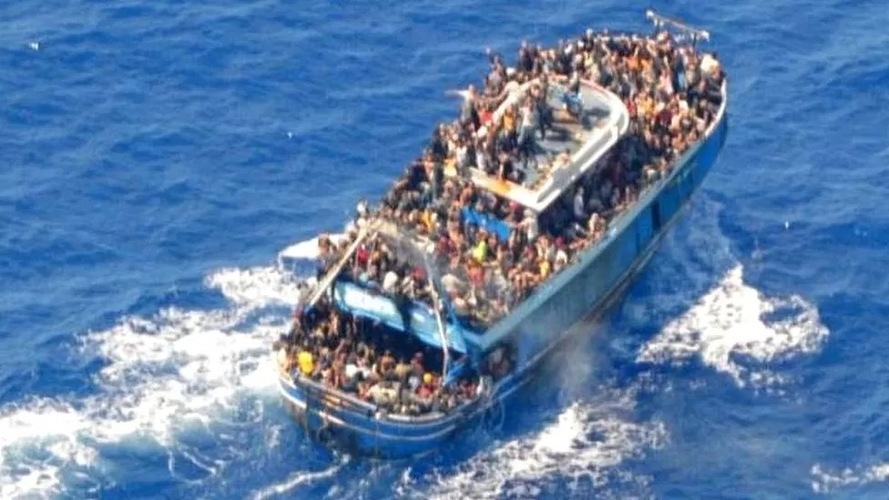MARLBORO — I was late to news of the submersible. And even later to write about it. Words felt too painful, like a trespass on tragedy. But to ignore the words written by others, especially those who mocked the lives needing oxygen, seemed an even greater disregard of our shared humanity.
My own grief, however, isn't without question.
What of the small boats filled with families, all those tilting, sinking vessels left floundering off coastlines, denied entry by laws and leaders and the conflict between citizens?
Just before the submarine, it was a boat of migrants off Greece. Seven hundred people. Unbearable.
I think of the boats that this nation turns away. I remember learning about a passenger ship filled with Jewish refugees that escaped Germany only to be forced to return to Europe because they did not have visas or security clearings.
More than 250 of those passengers went on to die in the Holocaust.
* * *
Some speak to the astronomical cost of the rescue attempts for the submersible or suggest that those who take unprecedented risks have to accept their fate.
I think of all those who take risks, risks that I would never consider, or even those I do take, like the “necessary” drive in the middle of a snowstorm.
I think of those who serve as rescuers, those who save strangers no matter the cost, sometimes paying with their lives.
But what of the rescues absent such clear stakes?
How many of us respond to the sensational crisis of the day or donate to those who experience a tragedy while simultaneously ignoring the slow, erosive suffering all around us, the suffering in our own communities and sometimes in our own homes?
Is grief a sign of virtue or simply self-indulgent sentimentality? What if grief is absent of the complex understanding necessary to support all those needing rescue? What of those who refuse to act to on behalf of the planet upon which we depend for oxygen?
Maybe the uber-wealthy, risk-taking tourists don't deserve an outsized share of multinational action and media attention. But isn't the ache we feel for them a sign of our shared humanity?
Is it the novelty of their plight which captures our attention? I think of school shootings. I think of how many stuffed animals were sent to Sandy Hook. I think of how routine these shootings have become.
Maybe if more of us could afford to travel to the sunk Titanic, we'd think less of those lost doing so.
Maybe it's easier, especially for those of us in positions of power and privilege, to imagine ourselves like the few tourists at the bottom of the sea, rather than the 700 human beings fleeing a war-torn nation in search of peace for their families.
* * *
Those who mock the tourists' plight do so in the face of glaring inequity. They recognize that the tragedies experienced by refugees stem from the exploitation of their lives and resources.
I imagine what is also true is that those who mock the tragedy of the Titan are like the rest of us, afraid. Afraid of our shared humanity.
At times so brave.
At times so vulnerable.
At all times, no matter how wealthy, reliant on the precious gift of oxygen.
